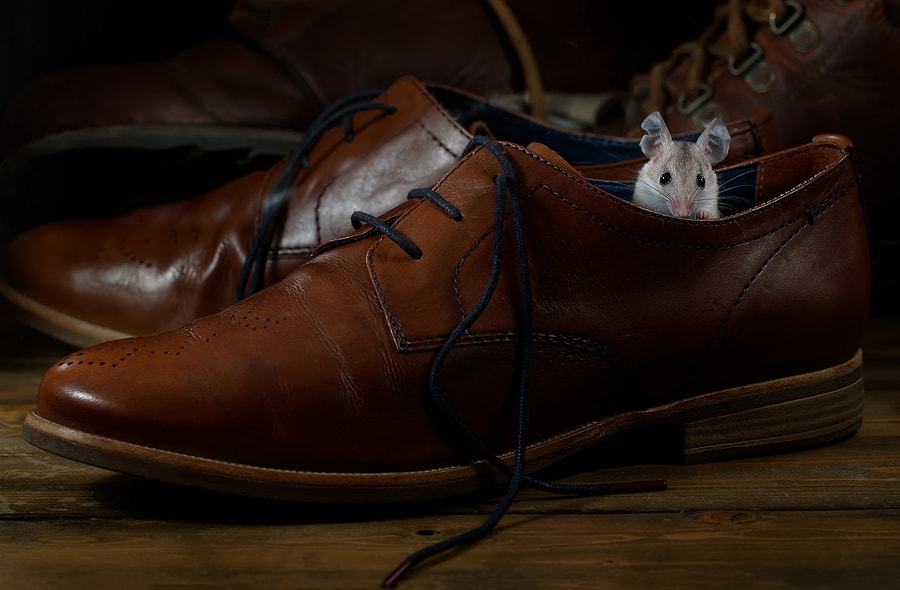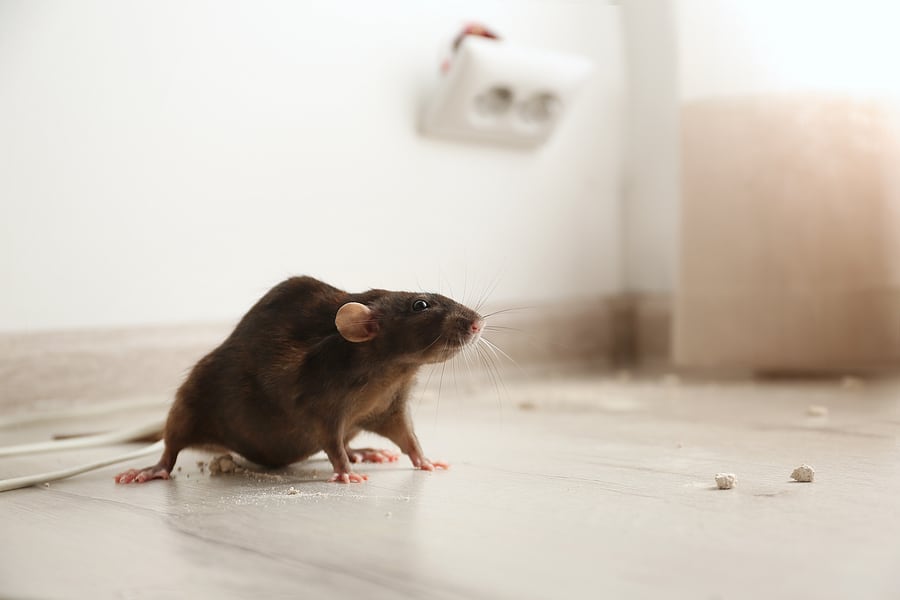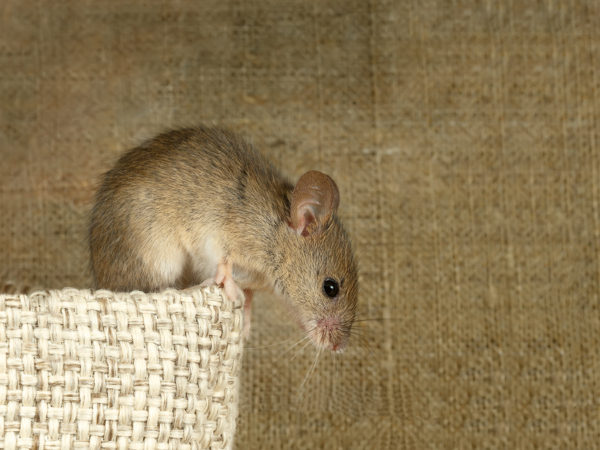READY TO GET STARTED?
REQUEST A FREE ESTIMATE
Fill out the form below or call (888) 466-7849 for a free, no-obligation estimate.

Mice are incredibly resourceful as they can quickly adapt to new environments. Small in size, these pests are looking for a warm place to shelter and provide a food source. If these rodents make it indoors, they can cause significant damage to your home. Here we list the major signs of mice in your home and how you can prevent them.
Seeing holes, tears, and gnaw marks is a major sign that mice are indoors. You can typically see this damage in bedding, clothing, fabrics, and other materials. Mice will use these shredded fabrics to help build their nests, usually located in dark, secluded areas. These pests will also chew and leave gnaw marks on inedible materials such as wood, plastic, cables, and electrical wiring.
A more obvious sign of a mouse infestation is hearing noises throughout the night. Mice can fit through holes and openings smaller than their bodies. Using their ability to fit through the smallest hole, they will often use the spaces between joists to travel from one part of the house to the other. If a mouse has gotten inside the walls, you’ll often hear scratching or scrabbling noises.
Another alarming sign that a mouse is inside is seeing their feces. Mouse droppings are around three to six millimeters or ¼ inch in length. They typically resemble small grains of rice and sometimes can be mistaken for cockroach droppings. If you see mouse droppings, it’s best to carefully pick them up with gloves and place them in a sealed plastic bag to ensure they don’t release bacteria or virus particles.
To help prevent mice, place the preventative measures below throughout your house.
If you notice any signs of mice inside your house, consider reaching out to your local pest control provider, where they will provide you with the best plan of action.

Rodents are one of the most resourceful pests when it comes to getting into your home. Mice and rats can squeeze through the tiniest cracks to gain access and they require very little space to travel inside. Rodents seek shelter indoors, especially during the fall and winter months as they go in search of warmth, food and water. While a rodent sighting can be scary enough, these pests also pose serious hazards to your home and your health. They can gnaw through cardboard, paper, and even electrical wires, putting you at risk for fires. They are known to carry bacteria, like salmonella and hantavirus, and can contaminate your food, kitchen surfaces, and other areas of your home. Even rodent droppings are dangerous – helping spread these pathogens to you and your family.
The first step in rodent control in and around your home is to prevent them from getting inside in the first place. Here are 10 easy tips you can use for preventing mice and rats:
If you do find signs of rodents in your home, best practice is to remove them and prevent re-entry as soon as possible. This is best accomplished by a professional pest control company who can not only eliminate the nuisance pests, but help identify nesting sites and points of entry to help prevent reinfestation in the future.
Don’t Forget the Forgotten Rooms
Avoiding A Winter Wildlife Invasion
9 Energy Saving Tips For Winter

Rodents are one of the most common pests that come into our homes in the winter. Rodents are in search of 3 things – food, water, and shelter – and they can find all 3 of them in and around our homes. Squirrels, raccoons, rats, and mice are some of the most frequently seen rodents in the colder months. Rodents can cause significant damage to property and can also be a big health risk to humans. Prevention is critical in managing and preventing an infestation of rodents. Check out these tips to keep the rodents out this winter: